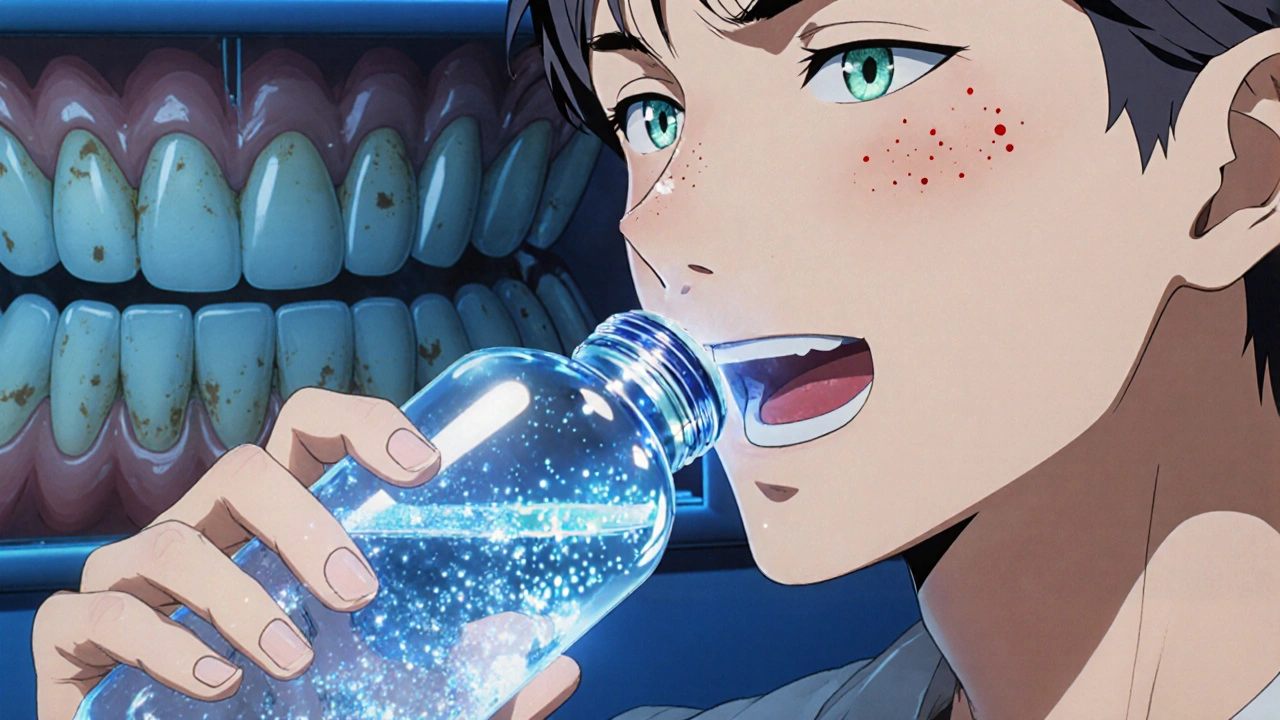Dental Health: Clean Teeth, Strong Gums, and What Really Works
When we talk about dental health, the overall condition of your mouth, teeth, and gums that affects everything from eating to speaking. Also known as oral health, it's not just about avoiding cavities—it's about stopping infections that can spread to your heart, lungs, and even your brain. Most people think brushing twice a day is enough, but that’s just the start. Gum disease, the silent killer of teeth, affects nearly half of adults over 30 and often shows no pain until it’s too late.
Fluoride is one of the most proven tools in dental health. It’s not magic—it’s science. Studies show fluoride in toothpaste and water reduces tooth decay by 25% or more. But it’s not the only player. oral hygiene, the daily habits that keep your mouth clean and bacteria-free includes flossing, tongue scraping, and using mouthwash that actually kills germs—not just freshens breath. And then there’s gum disease, an inflammation caused by plaque buildup that can destroy bone around your teeth. It starts as gingivitis—red, swollen gums that bleed when you brush—and if ignored, turns into periodontitis, where teeth loosen and fall out. No pain? Doesn’t mean it’s not happening.
Many think sugar is the only villain, but it’s not just candy. Sticky carbs like chips, bread, and even fruit juices feed the same bacteria that cause decay. And it’s not just what you eat—it’s when. Sipping soda or snacking all day keeps your mouth acidic, and your enamel never gets a chance to repair. Dental health also depends on what you don’t do: smoking, skipping cleanings, and ignoring a loose tooth. Even if you have dentures or implants, your gums still need care. Infections there can lead to serious problems elsewhere.
There’s a lot of noise out there—oil pulling, charcoal toothpaste, miracle gels—but the truth is simple: regular checkups, fluoride toothpaste, daily flossing, and cutting down on constant snacking are the only things backed by decades of real-world data. You don’t need expensive gadgets. You need consistency.
Below, you’ll find real guides on what works—like how antihistamines can affect dry mouth, why some medications increase tooth decay risk, and how to track recalls on dental implants. No fluff. No hype. Just facts that help you keep your teeth—and your whole body—healthy.

Rasagiline and Dental Health: What Parkinson's Patients Need to Know
Rasagiline helps manage Parkinson’s symptoms but can cause dry mouth, increasing the risk of cavities and gum disease. Learn practical steps to protect your teeth while staying on this medication.
More Detail